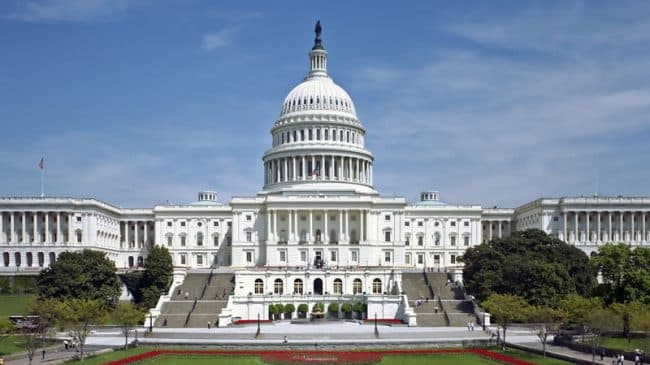Federal News Round-Up
Food and Drug Administration Commissioner Scott Gottlieb testified before a Senate appropriations subcommittee on President Trump’s Fiscal Year 2018 FDA budget request.
Argive, an independent, Silicon Valley-based non-profit group is encouraging participation from vapor-related businesses to assess the impact of the FDA’s deeming rule on U.S. businesses. Argive’s mission is to improve the communication loop between government and business owners. They build tools to collect grassroots data on the impact of regulations on the private sector. The data is then published in a publicly available, easy-to-search database designed to power transparent and efficient regulatory policymaking.
State News Round-Up
Eighteen state legislatures (including District of Columbia, Guam, Puerto Rico and U.S. Virgin Islands) are meeting actively this week.
California (local) has seen legislation move forward in a number of Bay Area communities that would ban menthol-flavored cigarettes and flavored vapor products. The San Francisco Board of Supervisors passed an ordinance to ban menthol cigarettes and flavored vape.
Maine’s House of Representatives approved legislation, by a 113-34 vote, that would increase the age of purchase for tobacco products to 21. The bill was referred back to the Senate where a previous version of the bill passed.
New Jersey’s Senate passed legislation that would increase the age of purchase for tobacco products from 19 to 21, by a 23-14 vote. The bill was referred to Gov. Chris Christie for consideration.
New York’s state Assembly unanimously passed legislation that would ban indoor vaping. The bill was sent to the state Senate for a concurrence vote. The Assembly also passed legislation that would ban the use of vapor products on school grounds by a 101-5 vote. The bill was previously passed the Senate and was sent to the governor for consideration.
Science and Harm Reduction
The authors of a systematic review and meta-analysis of longitudinal studies assessing the initial use of e-cigarettes and subsequent cigarette smoking among adolescents and young adults argue their results show e-cigarette use was associated with greater risk for subsequent cigarette smoking initiation and past 30-day cigarette smoking.
The paper’s conclusions were strongly disputed by professors Ann McNeill, Marcus Munafò and Peter Hajek. “Whether using e-cigarettes causes a young, never before smoker to go on to smoke tobacco cigarettes is important,” said McNeill. “This review does not find this. It cannot rule out the alternative explanation that young people who are interested in trying e-cigarettes are also interested in trying tobacco cigarettes.”
Regulation
The FDA is accepting public comments on modified risk tobacco applications for the IQOS system with Marlboro Heatsticks, IQOS System with Smooth Menthol Heatsticks, and IQOS system with Marlboro Fresh Menthol Heatsticks.
Taxation
Massachusetts’ Joint Revenue Committee held a hearing on legislation that would create a new tax on vapor products at a rate of 40 percent of the wholesale price. Reason Foundation Senior Fellow Brian Fojtik testified on the bill and encouraged the Committee to table the proposal.
The Delaware House Committee on Revenue and Finance approved legislation that would create a new tax on vapor products at the rate of 5 cents per milliliter of liquid, in addition to raising taxes on cigarettes and other tobacco products. The bill is eligible for consideration before the full House of Representatives.
What’s Coming Up?
American Legislative Exchange Council (ALEC) will hold its 44th annual meeting July 19-21 in Denver, Colorado.
Registration is expected to open soon for the 71st Tobacco Science Research Conference on September 17-20 in Bonita Springs, Florida.
The Global Tobacco & Nicotine Forum will be held September 12-14 in New York City.
Quotable Quotes
“In both the US and the UK, access to e-cigarettes has been accompanied by an unprecedented decline in youth smoking. Access to vaping does not generate an increase in smoking,” – Professor Peter Hajek, Director of the Tobacco Dependence Research Unit at Queen Mary University of London.
Additional Resources
The Proposed Tobacco Product Standard for NNN Level in Smokeless Tobacco Should Be Withdrawn
The World Health Organization’s Opposition to Tobacco Harm Reduction: A Threat to Public Health?
The Vapor Revolution: How Bottom-Up Innovation Is Saving Lives
Reason’s Research and Analysis of Nicotine and Vapor Issues

